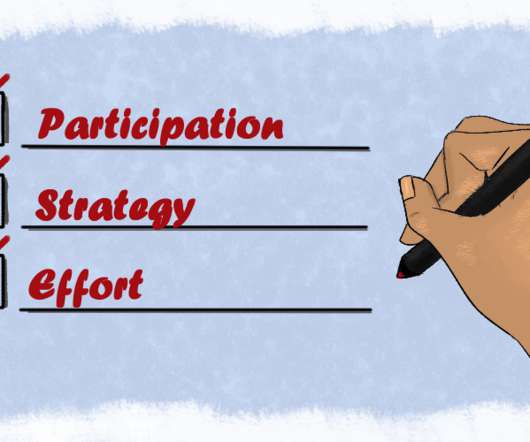Six Tips for Evaluating Your Nonprofit Training Session
Beth's Blog: How Nonprofits Can Use Social Media
FEBRUARY 18, 2014
Use Learning Theory. I have written a lot about how it is important to understand how the brain works, how people learn by using learning theories to guide the design of your workshops. It defines the outcomes of training in four different areas that you can measure. The four levels are: Reaction.












Let's personalize your content